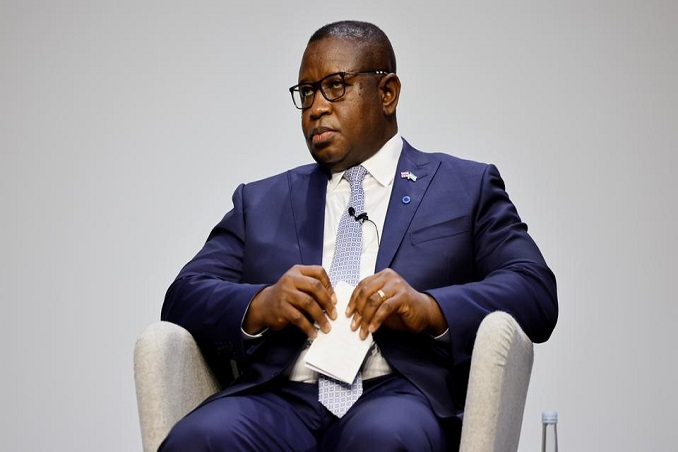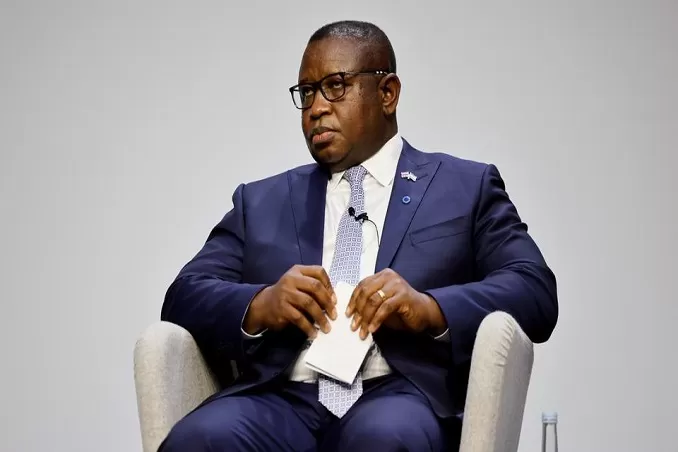

sierra leone has officially repealed the inhumane death punishment
![]()
![]()
The president issued a statement in which he called the execution penalty “inhumane.” “Today, we reaffirm our belief in the sacredness of human life,” he declared. Sierra Leone, which is still recuperating from decades of civil war, has come under fire from human rights organizations for maintaining the death penalty on the books on numerous occasions. In an interview with AFP, Sierra Leone’s Deputy Minister of Justice Umaru Napoleon Koroma revealed that its first recorded execution took place in 1798, roughly a decade after Britain established the colony for freed slaves in 1787.
According to the minister, ninety-four people were still living under the threat of death by the end of 2020. Despite this, there have been no executions in the country since 1998, and death sentences have frequently been commuted. After years of defying calls for a formal repeal of the death penalty, the administration announced plans to abolish the practice in May. In July, the parliament voted in favor of the bill. When it comes to crimes such as murder or mutiny, life imprisonment or a minimum 30-year prison sentence will be substituted for execution under the new rule.
Sierra Leone has become the latest African country to abolish the death sentence, following in the footsteps of countries such as Chad, which abolished the punishment just last year.-Dubbed the “ultimate cudgel,” Sierra Leone’s 1991 constitution provided for the application of the death sentence for crimes such as aggravated robbery, murder, treason, and mutiny, as well as other offenses. 24 military officers who had attempted a coup the year before were executed in the country’s most recent executions, which took place in 1998.
The diamond-rich but impoverished former British colony was ravaged by a civil war that lasted from 1991 to 2002 and cost the lives of 120,000 people. The death penalty should be abolished, according to a truth and reconciliation commission established in 2005 to investigate the brutal conflict. The commission described the death penalty as “an affront to civilized society.”
However, the authorities in this country of 7.5 million people were adamant in their opposition to the idea, and courts continued to sentence people to death. On Friday, Bio stated that “others argued that it would be irresponsible to relinquish the ultimate cudgel that has kept political opponents in line for so long.” “My attitude has always been a resounding and unequivocal opposition to death punishment in any form,” he stated. “We are a civilized nation,” says the president.
Having received Bio’s assent, the death penalty is now officially out of the books. In accordance with Amnesty International, 108 countries had totally abolished the death penalty by the end of 2020, while 144 had abolished the death penalty either via legislation or through practice. According to the human rights organization, 22 African countries have abolished the death penalty for all crimes.
Kenyan sprint star Ferdinand Omanyala finished second at the opening race of the Diamond League in Xiamen, China, on Saturday.…
The incessant rains have caused flooding in Durban and its neighboring areas. It has disrupted several core areas, with a…
Cross-border activity suffered vast disruption when the new ban started at midnight Thursday with its direct impact on border checkpoints…
South African Bank fined R700,000 after determining the institution misrepresented a credit product as an investment opportunity. Following its December…
EA Sports shows that Toronto Maple Leafs will stop their 58-year title wait by beating the Colorado Avalanche in seven…
Pope Francis, the first Latin American pope of the Roman Catholic Church, passed away in the morning of his 88th…
This website uses cookies.